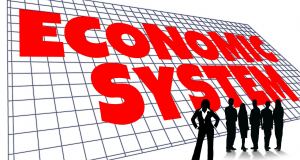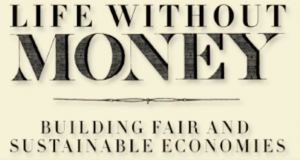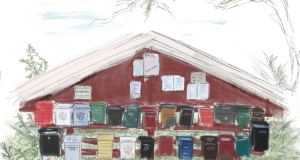
The money economy is a form of economy in which transactions are done with money. Alternatives are possible, e.g. bartering, but money is the dominant factor for transactions between people. The money economy is a product of human society.
Money is impersonal and reduces qualitative values to a quantity (source)
Other economies
Other economic forms or concepts are for example:
- Gift economy
- Swap economy
- Sharing economy
Borrowing money and interest
The money economy is based on the creation of money through the process of borrowing money and interest. Consumers, but also companies and governments borrow money because money is seen as the engine of prosperity. People think nothing is possible without money. To some degree we as a society are addicted to money. Without money we can't live.
Outgrowing money
It's an art to think of ways to grow out of the money system, to reduce the influence of money on our existence. Robino wrote a story about outgrowing money: effective refusal. The following citations stems from it:
But why should we stop participating in this system? Because it's the system in which so many are trapped denies our existence. The system refuses to acknowledge me as a human. It doesn't allow us, for everyone to simply be human.
Value of money
Through the dominance of borrowing money there's also the process of commodifying. It means that the value of everything is expressed in money. Even of stuff that was previously freely shared, such as food. There's a price attached.
We think it's good, because it ensures a certain distribution. But it's a system based on the creation of scarcity and it's thriving on poverty, overproduction and for example food waste. All in all we don't even know what the value of money is.






